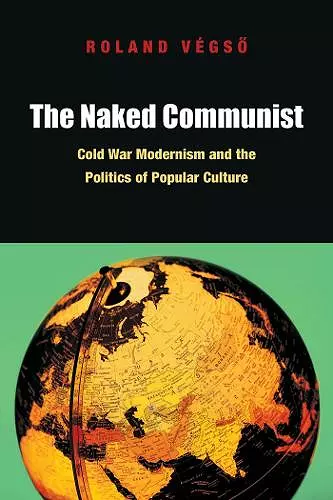The Naked Communist
Cold War Modernism and the Politics of Popular Culture
Format:Paperback
Publisher:Fordham University Press
Published:10th Dec '12
Currently unavailable, and unfortunately no date known when it will be back
This paperback is available in another edition too:
- Hardback£74.00(9780823245567)

Describes the internal mechanisms of an anti-Communist "aesthetic ideology"
Based on an analysis of American anti-Communist politics in the 1950s, the book presents parallel readings of modernism and popular fiction by concentrating on four recurrent figures (the world, the enemy, the secret, the catastrophe) in order to show that the two cultural fields participated in a common ideological program.
The Naked Communist argues that the political ideologies of modernity were fundamentally determined by four basic figures: the world, the enemy, the secret, and the catastrophe. While the “world” names the totality that functioned as the ultimate horizon of modern political imagination, the three other figures define the necessary limits of this totality by reflecting on the limits of representation.
The book highlights the enduring presence of these figures in the modern imagination through detailed analysis of a concrete historical example: American anti-Communist politics of the 1950s. Its primary objective is to describe the internal mechanisms of what we could call an anti- Communist “aesthetic ideology.” The book thus traces the way anti-Communist popular culture emerged in the discourse of Cold War liberalism as a political symptom of modernism. Based on a discursive analysis of American anti-Communist politics, the book presents parallel readings of modernism and popular fiction from the 1950s (nuclear holocaust novels, spy novels, and popular political novels) in order to show that, despite the radical separation of the two cultural fields, they both participated in a common ideological program.
"Mr. Vegso has established a perspective on cold war literary and cultural politics informed by the most sophisticated post cold war political theory - Ranciere, Badiou, Laclau-Mouffe, Zizek. In providing this perspective, he has constructed a framework for the analysis of cold war cultural politics that is certain to exert a major influence on the accounts of that period for many years to come." -- -Donald Pease Dartmouth College "This book provides a wonderful new way to understand a crucial moment in the history of literary and political studies: the intersection in the 1950s between the canonization of Modernist Literature and Anti-Communist politics. The book provides a very important intervention in the way literature is studied and taught: we often try to read texts in their own eras, without paying attention to the ways that those texts and those eras have been in effect "constructed" by later history. Modernism seems to be a product of the early twentieth century; Vegso shows that what we see in Modernism is far more a product of the 1950s." -- -Michael Tratner Bryn Mawr College
ISBN: 9780823245574
Dimensions: unknown
Weight: unknown
256 pages